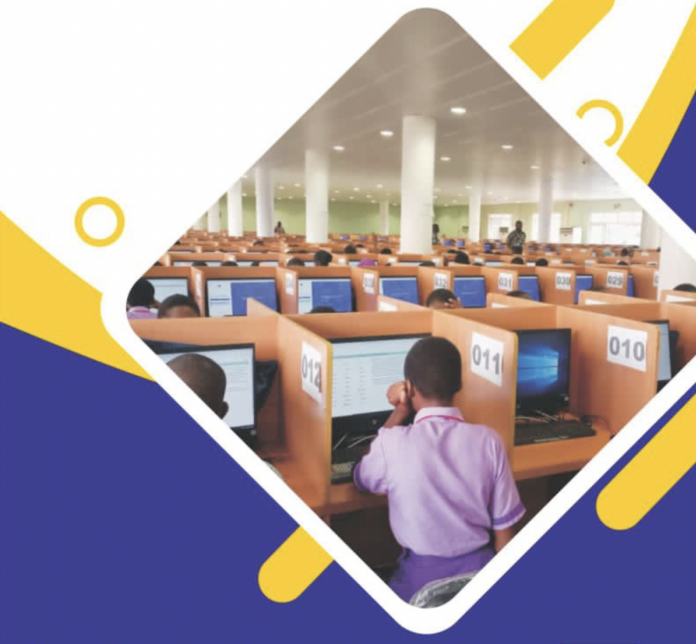The Academic Staff Union of Universities (ASUU) has raised serious concerns about the alarming discrepancy between students’ exceptional performance in secondary school certificate exams and their dismal academic performance in universities. This growing trend, according to ASUU, may point to widespread manipulation of examination results, with the union now calling for immediate reforms in Nigeria’s educational system.
ASUU President, Professor Emmanuel Osodeke, in a letter addressed to secondary school teachers, school owners, and parents, expressed grave concerns over students’ qualifications that did not align with their actual academic abilities. “We are tired of seeing students who score A1 in Mathematics but cannot solve the simplest of fractions,” Osodeke stated, highlighting the gap between the results students achieve in exams like the West African Examination Council (WAEC) and their actual competence.
The letter also criticized the discrepancy in the sciences, noting that some students obtain distinctions in Physics and Chemistry yet lack fundamental knowledge in these subjects. “Students with top grades in Physics don’t understand chemical reactions, and those with distinctions in Chemistry fail to grasp basic energy conversion concepts,” ASUU emphasized in the letter, suggesting a deeper crisis within the education sector.
Experts agree that Nigeria’s educational system is plagued by multiple systemic challenges that threaten the future of its youth. Inadequate funding, insufficient qualified teachers, and rampant corruption are frequently cited as contributing factors to the country’s educational malaise. With a growing number of students unable to meet academic expectations, the integrity of the certificates awarded is increasingly being questioned.
Nubi Achebo, the Director of Academic Planning at the Nigerian University of Technology and Management, supported ASUU’s concerns, stating that the poor outcomes in education are a result of a “complex web of issues.” Achebo identified a weak foundation in primary and secondary education as one of the root causes, noting that many students struggle with basic subjects like Mathematics and English due to inadequately trained teachers and insufficient resources in schools.
“The quality of education in Nigeria is severely compromised. Many teachers in private schools, for example, are paid as low as N20,000 per month, making it difficult for them to deliver quality teaching,” Achebo said. He further pointed out that the overemphasis on certificates rather than knowledge has contributed to the rise of students who may have passed exams but lack real-world competencies.
Corruption and malpractice within the education sector, he added, continue to undermine the credibility of academic qualifications. “Examination malpractice is rampant in Nigerian schools, with parents and school owners seeking shortcuts to ensure that their students pass exams at any cost,” Achebo noted, suggesting that reforms to the examination system and the education structure are urgently needed.
Isaiah Ogundele, a seasoned educationist, agreed that moral decay in Nigerian society has exacerbated the issue. He revealed that many parents manipulate their children’s details to enable them to gain admission, while some even resort to paying for exam results through unofficial channels. “Corruption runs deep in our educational system. Many parents falsify children’s ages to gain unfair advantages during admissions, and some schools provide services where students don’t even sit their exams,” Ogundele lamented.
He proposed that an additional screening process should be instituted to ensure that students who are admitted into higher institutions actually meet the necessary academic standards. “There should be an examination after the post-UTME to weed out students who were admitted under questionable circumstances,” he suggested, calling for a more stringent review process.
While the manipulation of exam results in secondary education is a pressing concern, Stanley Alaubi, a senior lecturer at the University of Port Harcourt, pointed out that the issue is particularly prevalent in private schools. “In private schools, there is often pressure to ensure students perform well in exams so that the school’s reputation is maintained. This results in grade inflation, where students are given high marks they do not deserve,” he explained.
According to Alaubi, the foundation of Nigerian students’ academic careers is critical. Without a solid foundation in secondary education, ASUU and university lecturers are left to pick up the pieces, often dealing with underprepared students. “If the foundation of our secondary schools is not strong, it becomes difficult to build on it at the university level. That is why I fully support ASUU’s call to stop inflating students’ results at the expense of their future,” he stated.
The problem, experts say, extends beyond just exam results and grade inflation. It is part of a broader issue facing Nigeria’s education system. Overcrowded classrooms, especially in public schools, are limiting students’ ability to receive personalized attention from teachers. The Nigerian government’s efforts to address these problems have been slow and insufficient. A recent UNICEF report revealed that Nigeria has one of the highest rates of out-of-school children globally, with public schools in particular struggling to accommodate the rising number of students.
Nigeria’s public education sector faces a teacher-student ratio of more than 50 students per teacher in some schools, making it increasingly difficult for teachers to engage with students on a one-on-one basis. This overcrowding, combined with inadequate resources, has led to a diminished quality of education.
To tackle the challenges in the education sector, Nubi Achebo recommended that Nigeria overhaul its educational system. He emphasized the need for a comprehensive reform that focuses on teacher training, curriculum development, and infrastructural improvement. “We need to create a culture of learning, where students are motivated by knowledge acquisition rather than just acquiring certificates. Teachers must be well-trained and incentivized to perform their best,” Achebo said.
Furthermore, Achebo suggested that technology could play a pivotal role in bridging the education gap, particularly in rural areas where access to quality education is limited. “Technology can improve access to education, especially in underserved areas. By leveraging digital tools, we can provide students with better learning resources and enable teachers to reach more students,” he noted.

